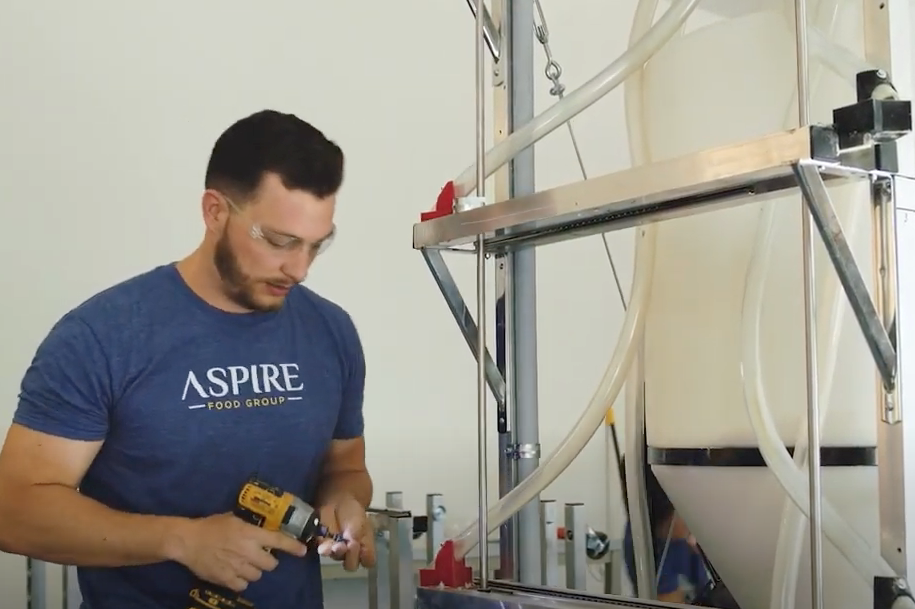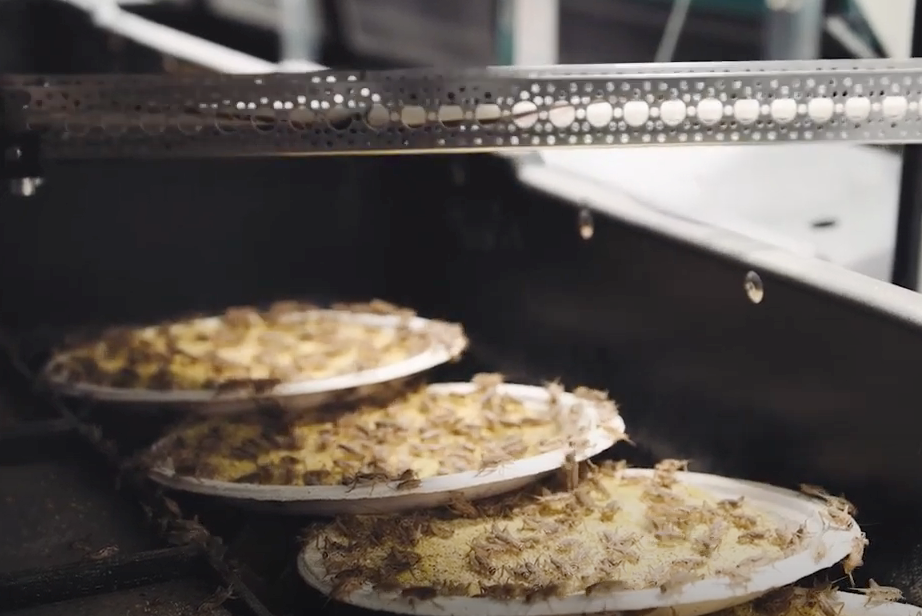Down on the (cricket) farm
Aided by a consortium of advanced manufacturing partners and $16.8-million in new funding, Aspire Food Group is building a ground-breaking, high-tech cricket farm of the future
Photo: Aspire Food Group is building a 100,000-square-foot cricket processing facility near Veterans Memorial Parkway and Highway 401
A NEW ADVANCED manufacturing facility is headed London’s way, one that doesn’t produce tech products, build electric vehicles or grow cannabis — it grows crickets.
Aspire Food Group has already broken ground on the 100,000-square-foot Innovation Park cricket production facility that CEO Mohammed Ashour describes in ambitious terms as a leap forward in food production technology.
If details regarding boxes full of crickets aren’t your thing, here’s the gist: What Aspire is building is a high-tech, largely automated cricket production factory. And with the help of various tech partners pulled together in a consortium, in which they are planning on using automation and complicated data science methods — deep learning, neural networks, artificial intelligence, etc. — the goal is to make the facility the most efficient cricket protein producing machine out there.
This week, the facility received a big boost from industry and government in the form of $16.8 million in funding from Next Generation, an advanced manufacturing “super cluster” created to fund and support innovative companies making products with global commercial potential.
“What took the poultry industry 70 years to accomplish, we can do in five” ―Mohammed Ashour
Crickets, Ashour explains, are a predictable livestock, making it easy to gather and use data to improve their production methods.
“You can take a lot of measurements and collect a lot of data, which is very useful,” he says. “Then what you can do is start to correlate those factors with growth outcomes and yields.”
Eventually, what you have, Ashour says, is a “self-correcting, self-improving production system” for churning out around 20 billion crickets every year.
To do this, they have funding through Next Generation Manufacturing Canada (called NGen, it’s the industry organization behind Canada’s advanced manufacturing supercluster program) and are partnering with a host of industrial tech firms, including Telus Agriculture, London-based A&L Canada Laboratories, DarwinAI and Swift Labs, on the project.
Story Continues Below
Partnering with those firms — and part of the pitch to them — Ashour explains, is to allow companies like Waterloo-based DarwinAI access to a new vertical where their technology can be deployed and refined.
“We are extremely excited about applying our technology to such an innovative and forward-looking initiative,” says Sheldon Fernandez, CEO of DarwinAI. “Our unique ability to illuminate the ‘black box’ of artificial intelligence has enabled transformative AI in numerous contexts, and the opportunity to advance the important causes of food security and next-generation manufacturing is special indeed. We look forward to helping the Aspire Food Group implement their ambitious vision.”
Ashour is not shy in describing what he thinks this could all mean.
“What took the poultry industry 70 years to accomplish,” he notes, comparing their improvements in cricket production to the growth in chicken output over the 20th century, “we can do in five.” He says this could bring the price of cricket flour down by up to 75 per cent, something that could substantially change the equation that has so far kept cricket protein from catching on in the west.
The idea of crickets-as-staple-protein has been gaining momentum in recent years. Crickets offer a clean and cost-effective source of protein that is substantially more sustainable to produce in large quantities than livestock. Though insect-eating has never been prevalent in the west, the United Nations has thrown its support behind expanding insect consumption, saying in 2013 that “farming insects for human and animal consumption is particularly relevant at a time when population growth, urbanization, and the rising middle class have increased the demand for food while simultaneously harming the environment that enables its production.”
Story Continues Below
The facility is scheduled to be opened by the end of the year, and Ashour says they plan to start shipping shortly after that. Aspire is primarily a supplier of raw ingredients to elsewhere in the food industry, but Ashour also says that pet food is a major market opening up for them, as crickets represent a “goldilocks protein” for the industry.
“At $16.8 million in Supercluster funding, this project represents a high mark for NGen,” says Jayson Myers, CEO of NGen. “This is a truly innovative and ground-breaking project and supports the objectives of NGen — developing transformative and applied world class advanced manufacturing solutions while creating mutually beneficial partnerships that will have a positive impact on Canadians and the economy.” ![]() Kieran Delamont
Kieran Delamont





